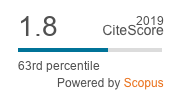Profits and purpose: Organizational tensions in social enterprises
Abstract
Purpose: This paper aims to explore the way in which three indigenous social enterprises from Guatemala, Mexico and Peru, solve the paradox of simultaneously producing social and economic value, which creates organizational tensions.
Design/methodology/approach: This research follows a qualitative method based on a case study research strategy. Three different data collection techniques are applied: Analysis of internal reports, direct observation, and semi-structured interviews with relevant stakeholder, mainly employees and managers.
Findings: Indigenous social enterprises deal with organizational tensions by adopting different organizational structures and privileging one dimension over the other (social or economic) in decision making
Social implications. Indigenous social enterprises generate quality of life and reduce historical exclusion patterns by strengthening local economy dynamics through social innovation.
Originality/value: Social innovations, appreciated in different organizational structures, contribute to alleviate the tension that arises from managing entities with double purpose. Also, this research provides evidence of how marginalized groups can overcome exclusion and poverty conditions by creating indigenous social enterprises.
Keywords
DOI: https://doi.org/10.3926/ic.1208
This work is licensed under a Creative Commons Attribution 4.0 International License
Intangible Capital, 2004-2024
Online ISSN: 1697-9818; Print ISSN: 2014-3214; DL: B-33375-2004
Publisher: OmniaScience








